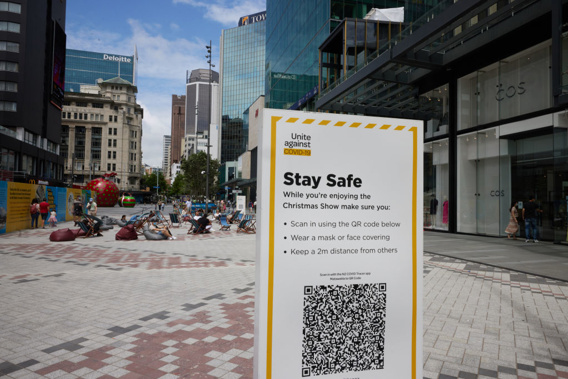
COVID LATEST:
* Kiwi Covid denier's Delta hell: 'We were planning my funeral'
* Mayor slams anti-vax abuse after bakery is forced to call police
* DHB investigating claim vaccination staff paid for big night out with Prezzy cards
* Omicron - is a border rethink warranted?
* Some pharmacies criticised for charging to print vaccine passes
* NSW set to ease restrictions for unvaccinated as Omicron outbreak grows
A new drug to treat high-risk Covid-19 patients is a "big step forward" in the fight against the pandemic, Prime Minister Jacinda Ardern says.
But an expert warns the "race is on" for regulatory body Medsafe to approve the new antiviral drug from Pfizer, along with others in the queue, before the Delta outbreak really takes hold of the country.
Government drug-buying agency Pharmac has secured 60,000 doses of the drug, which is known overseas as Paxlovid.
Trials have been very promising for the oral pill, with the risk of hospitalisation reducing by 89 per cent for adults with mild to moderate Covid-19 at high risk of progressing to severe illness.
However, this was when the pill had been administered within three days of someone having symptoms.
University of Otago infectious diseases physician Professor Kurt Krause said this meant the country needed to "up our game" when it came to testing and getting results back quickly, such as implementing rapid antigen testing.
The drug adds to five other medications secured by Pharmac, including baricitinib, ronapreve, remdesivir, tocilizumab and molnupiravir.
Krause said Pharmac had made "good choices", but the key now was getting them approved here.
Supplies of ronapreve for example had been secured in September and molnupiravir in October but had still not been approved by Medsafe.
"It is an important process and Medsafe needs to be really comfortable," Krause said.
"I think we picked right, but we are now in a bit of a race before Covid spreads through the whole country.
"Still the primary treatments we have are vaccines and public health measures such as social distancing."
The antiviral treatment will need to be taken twice a day for five days by those people in the early stages of infection. Krause said this meant New Zealand could need to secure more supplies. The United States had secured 10 million doses.
The Pfizer antiviral is expected to be delivered to New Zealand in April, once approved by MedSafe.
Money for all six medicines comes from the Government's Covid-19 fund.
Alongside vaccinations, New Zealand's hospital treatments were already reducing the likelihood of people needing ICU care, with the ICU rate in Auckland dropping to 3 per cent of hospitalisations, down from 5.7 per cent previously, Ardern said.
On vaccination projections, looking towards the next traffic light system review next Monday, Ardern said 88 per cent of the eligible population was fully vaccinated.
The nation was projected to hit 90 per cent double dose by December 14 or 15.
The Auckland DHBs were projected to do so also, coinciding with the date Auckland's boundary was due to open.
Of Monday's 135 new cases, there were 125 in Auckland, 8 in Waikato and 2 in Canterbury. There were four new cases in Nelson-Marlborough that would be included in Tuesday's total.
There was also a positive wastewater result in Tairāwhiti, with local residents urged to get tested if they had any symptoms.
Seventy-six people were in hospital with the virus, including seven people in ICU or HDU.
Meanwhile the Government's pandemic response for Māori has increasingly come under the spotlight.
Māori with a younger population level were disadvantaged by the vaccine rollout, which prioritised older age bands.
Since the rollout opened to all eligible age groups on September 1 Māori have been vaccinated at double the Pākehā rate, but are still about 16 percentage points behind the overall rate for second doses.
On Monday the Waitangi Tribunal started hearing a claim from Māori leaders including the NZ Māori Council about whether the Government's Covid response has honoured the principles of Te Tiriti o Waitangi.
The tribunal's panel members heard from several submitters about how Māori providers felt their consultation with the Crown was nothing more than lip-service, how it was statistically inarguable that a rollout based on age was biased against Māori, and how Government funding for "by Māori for Māori" vaccine programmes was too little, too late.
Submitters also warned that Māori children and their families would disproportionately bear the burden if the vaccine rollout for children aged 5 to 11 – if approved - mirrored the adult rollout.
On Monday the High Court also again ruled against the Ministry of Health and ordered it to reconsider its decision to withhold Māori vaccination data from the Whānau Ora Commission Agency.
Take your Radio, Podcasts and Music with you









